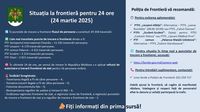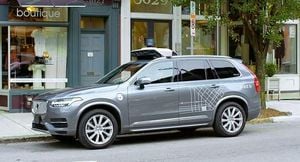On March 23, 2025, the Romanian border police were busy, processing a staggering number of people and vehicles at the country's external borders. The authorities reported that approximately 71,000 individuals and over 15,800 vehicles crossed the borders, which include the borders with Serbia, Moldova, and Ukraine, as well as maritime and air routes beyond the Schengen area.
Among those, 36,840 people and 8,536 vehicles entered Romania. Notably, the Romanian border police have been diligently managing the intricate flow of individuals crossing into the country. Since February 10, 2022, the situation has included a substantial influx of Ukrainian citizens, with a staggering 11,333,795 having entered Romania during this period up to March 23, 2025.
To assist travelers further, the border police have implemented measures to provide real-time information regarding wait times at external border crossing points. This information can be accessed through the online application, Trafic on-line, aimed at making international travel smoother for those wishing to exit Romania.
Additionally, an important change occurred on January 1, 2025: border controls were eliminated at Romania's internal borders with Hungary and Bulgaria. This means that all travelers can now move toward or from other Schengen member states without stopping at border control cabins for document verification. However, it should be noted that Romanian border police still retain the ability to conduct random checks within a 30-kilometer zone of the internal border or at various road junctions, thus continuing to ensure safety and legal compliance.
In the past 24 hours alone, over 11,400 checks were performed by border police using the relevant databases. These checks revealed 149 illegal acts, comprising 45 crimes and 104 contraventions, leading to penalties totaling 61,400 lei in fines. Moreover, goods valued at over 810,300 lei were confiscated, with the goal of protecting consumers. During this monitoring period, 18 foreign citizens were denied entry into Romania, and five Romanian citizens were also prevented from exiting the country due to various legal reasons.
The Romanian border police continue to take firm actions daily with the support of other authorized institutions to detect and sanction individuals who violate laws. Their commitment is evident in the desire to facilitate border transit for road users while offering support to citizens in any situation.
In the neighboring Republic of Moldova, border crossing points also experienced considerable activity. On March 24, 2025, the Moldovan border recorded 39,358 crossings. The busiest points remained the Chișinău International Airport, Leușeni, Palanca, Sculeni, and Otaci, seeing thousands of crossings from individuals every day.
However, issues still arose within the Border Police's operations in Moldova as, in the previous day alone, 16 foreign citizens were refused entry. Violations included four illegal crossings and three other cases related to the non-compliance with the rules regarding entry and stay in Moldova.
An important recommendation given by the Moldovan authorities to avoid congestion at border points included suggesting alternative crossing points such as Leova-Bumbăta or Cahul-Oancea instead of Leușeni-Albița.
Meanwhile, a concerning development took place on March 23, 2025, at the Moravița border crossing in Romania, where two vehicles were intercepted by border police. These vehicles were reported as wanted for confiscation by authorities from Switzerland and Slovenia. The first incident involved a Romanian driving a luxury car worth approximately 200,000 lei, which was flagged by Swiss authorities. Later, an Albanian citizen was caught driving a truck also flagged for confiscation, valued at around 160,000 lei.
In total, the two confiscated vehicles are valued at approximately 360,000 lei, demonstrating ongoing efforts by border police to combat smuggling and other illegal activities. Investigations are underway into these cases.
Overall, the Romanian and Moldovan border police are actively managing the influx of individuals while upholding national security. With the elimination of certain internal border controls, the focus appears to shift towards random checks and ensuring compliance with legal standards for both citizens and travelers.
The cross-border cooperation between Romanian and Moldovan authorities highlights the importance of joint efforts in maintaining the integrity and security of their borders.
This ongoing vigilance is crucial as both countries balance facilitating travel while safeguarding their nations against illegal activities.





